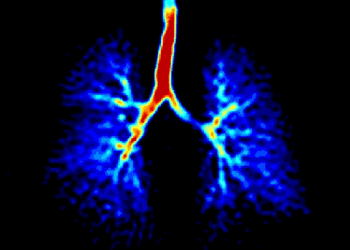Even with Disease-modifying Treatments, Anesthesia Risks for Children with Pulmonary Hypertension Remain High
Written by |

According to a study conducted by a team of researchers at the Department of Anesthesia, Hospital for Sick Children, in Toronto, Canada, children with pulmonary hypertension are at high risk of serious complications and even death associated with anesthesia and surgery. The study titled “The Impact of Targeted Therapies for Pulmonary Hypertension on Pediatric Intraoperative Morbidity or Mortality,” was published in the journal Anesthesia & Analgesia.
Suprasystemic pulmonary hypertension (PHT) has a reported 5% to 7% major anesthesia morbidity secondary to acute pulmonary hypertensive crises or right ventricular (RV) ischemia. Long-term oral treatments of PHT targeting pulmonary vascular responses have been found to improve symptoms, with a meta-analysis reporting a 43% reduction in mortality. Consequently, patients are now presenting to anesthesia/surgical services for procedures associated with PHT and other childhood and adolescence illnesses.
[adrotate group=”4″]
In their study, Dr. Taylor and colleagues examined the frequency of major and minor events during anesthesia under the current strategies to manage PHT.
The team of researchers reviewed the clinical records of 122 children with PHT who underwent 284 non-heart surgeries from 2008 to 2012. Results revealed that forty-three percent of procedures were performed while the children were receiving the newer disease-modifying treatments, with a rate of minor (3.9%) and major (3.2%) complication rates. However, the etiology of PHT was not significant for complications, and disease-modifying agents were not associated with reduced complications: 4.1% in treated versus 8.6% untreated. The researchers also found that patients treated with home oxygen had more complications. Using multiple logistic regression the results revealed that age and degree of PHT were predictors of complications.
[adrotate group=”3″]
“The risk for adverse events during anesthesia in patients with PHT remains high, despite newer disease-modifying treatments,” said study author Dr. Katherine Taylor and colleagues of the Hospital for Sick Children, Toronto in a recent press release.
The team of researchers indicate that other studies with control groups are necessary to identify the risk factors associated with anesthesia complications. Moreover, the researchers report that more actual events are necessary to be studied, in order to limit statistical confounders. However, this study comprehended the largest series of pediatric patients with PHT undergoing anesthesia and the only data set since the introduction of new disease-modifying drugs, which has demonstrated survival benefits.




